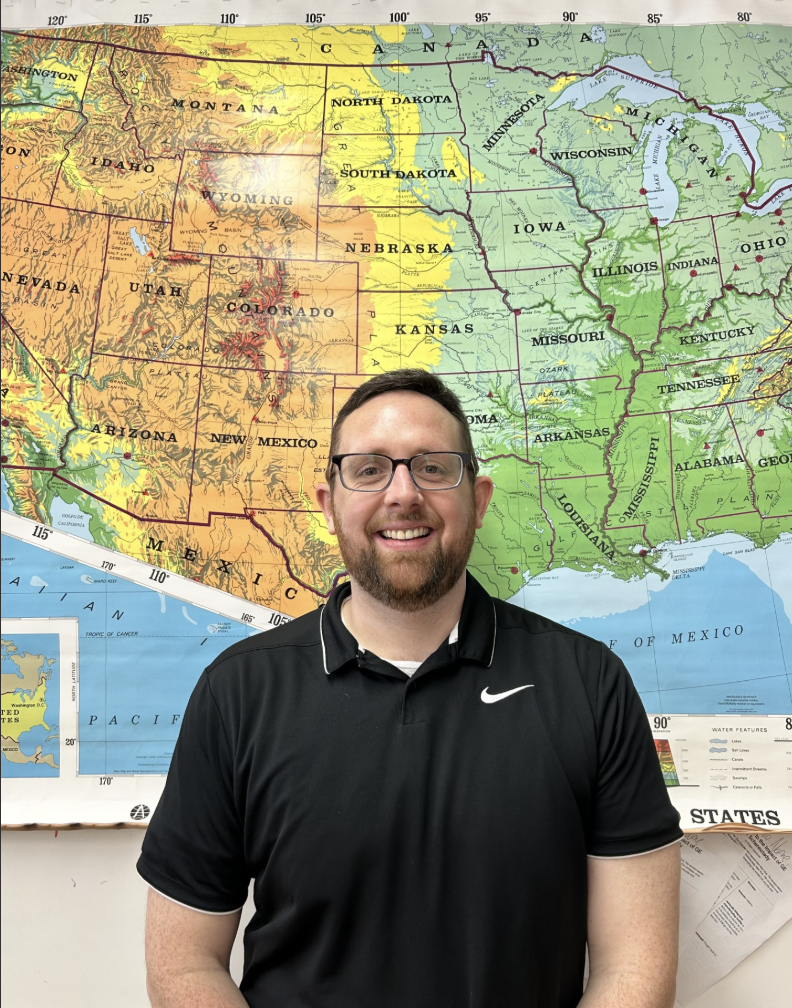Written by John Grant, a GC educator based in New York City
My name is John Grant, and I teach Social Studies at Quest to Learn High School in New York City. Over the years, I’ve taught Global History, U.S. History, and Economics, but I consider my role as a Civics teacher to be the most important.
I grew up in a household where civic engagement wasn’t an abstract concept — it was part of everyday life. My parents are lifelong public servants and have made civics a large part of my family’s legacy.
My mother, Eileen, began her public service as a legislative aide in New York State before joining the New York State Office for People with Developmental Disabilities. My father, Thomas, worked in the New York State Senate from 1977 for nearly two decades in senior legislative and committee roles, later serving as Executive Assistant to the Chair of the Division of Parole and as their official spokesperson. He was eventually appointed to the New York State Parole Board by Governor Pataki and continues to serve today as an elected official on the Rensselaer County Legislature. My mom remains at his side as his campaign advisor. Their shared commitment to public service shaped every part of my upbringing. Civic responsibility wasn’t just something they believed in. It was something they modeled, lived, and passed on to me.
That foundation led me to study Political Science, and later Secondary Education and History, at SUNY New Paltz. It also continues to inform how I show up in my classroom, where I have the privilege of supporting my students as they navigate their own understanding of civic life.
Partnering with Generation Citizen has helped me bring civics to life for my students in real and transformative ways. Through their community-based civics projects, my students learn how they can play an active role in creating meaningful policy change. Each year, they identify pressing issues in our community, ranging from homelessness to vaping in schools. These problems often feel overwhelming at first, but with the tools of civic education and support from GC, our seniors at Quest are empowered to take meaningful action and reach out to stakeholders in the community.
It’s always exciting to hear students say things like, “Wow, I didn’t even know we could call them,” or “I’m going to reach out to these officials about other issues.” Through our collaboration with Generation Citizen, we’ve also had local officials visit our school to hear student ideas directly. In these moments, I see the same belief in the power of civic engagement taking root in my students that my parents once planted in me.
Now more than ever, civics education is essential. Across the country, we’re witnessing a decline in public understanding of government and democratic structures as well as a rise in misinformation and distrust. The best way to counteract this is by equipping young people with the knowledge and tools they need to participate meaningfully in democracy. Civics education isn’t just a history lesson; it’s preparation for life. Our students are stepping into a complex world. They deserve to know how to navigate it and how to shape it.
I teach Civics because I believe in that potential. I believe in this generation, and I’m grateful to organizations like Generation Citizen for playing a vital role in this mission. Their work must continue to be supported and celebrated as we support the next wave of informed, engaged, and courageous leaders.
When we equip students with the tools of democracy, we’re not just teaching them how to participate. We’re showing them that they belong.
